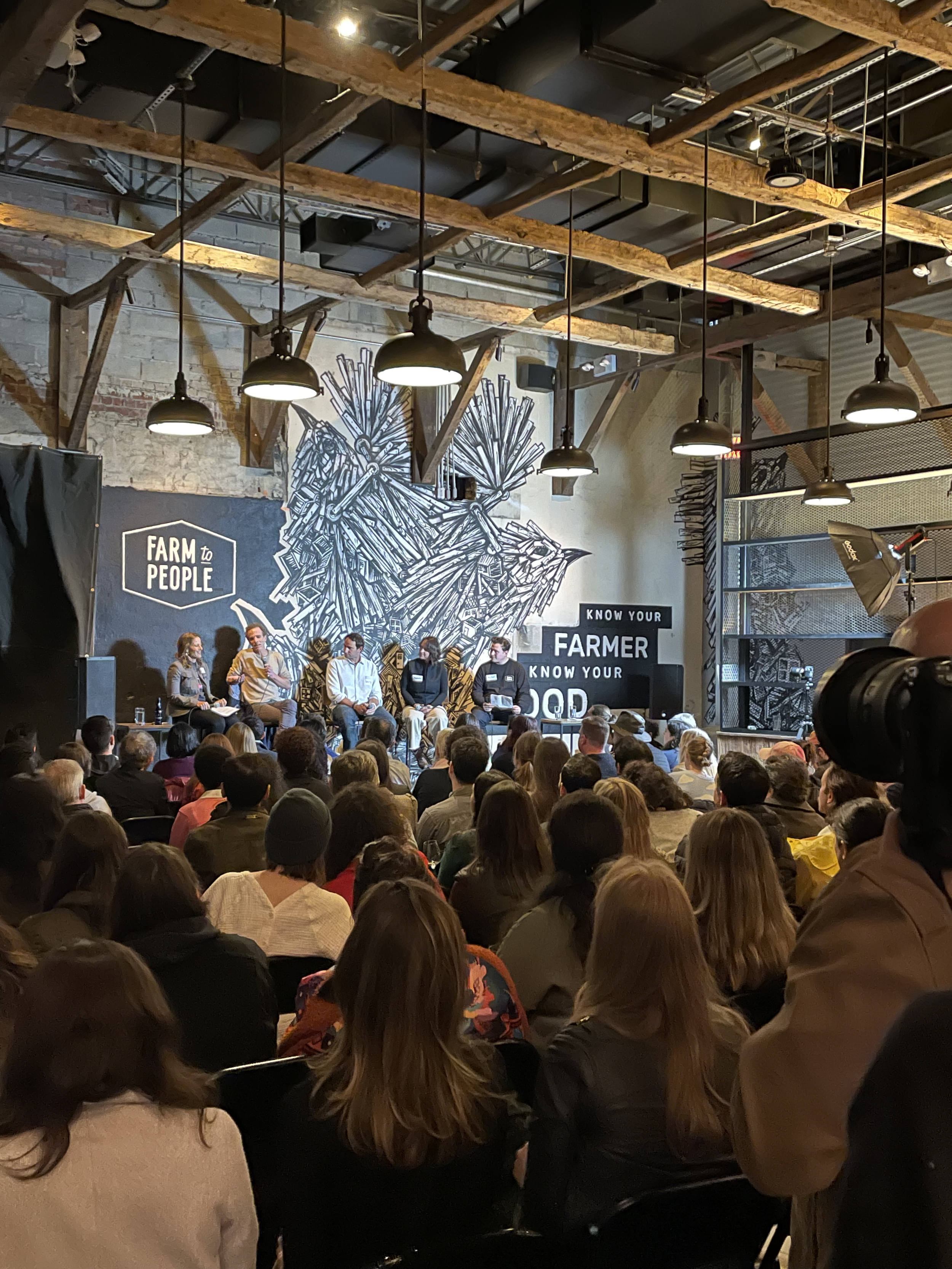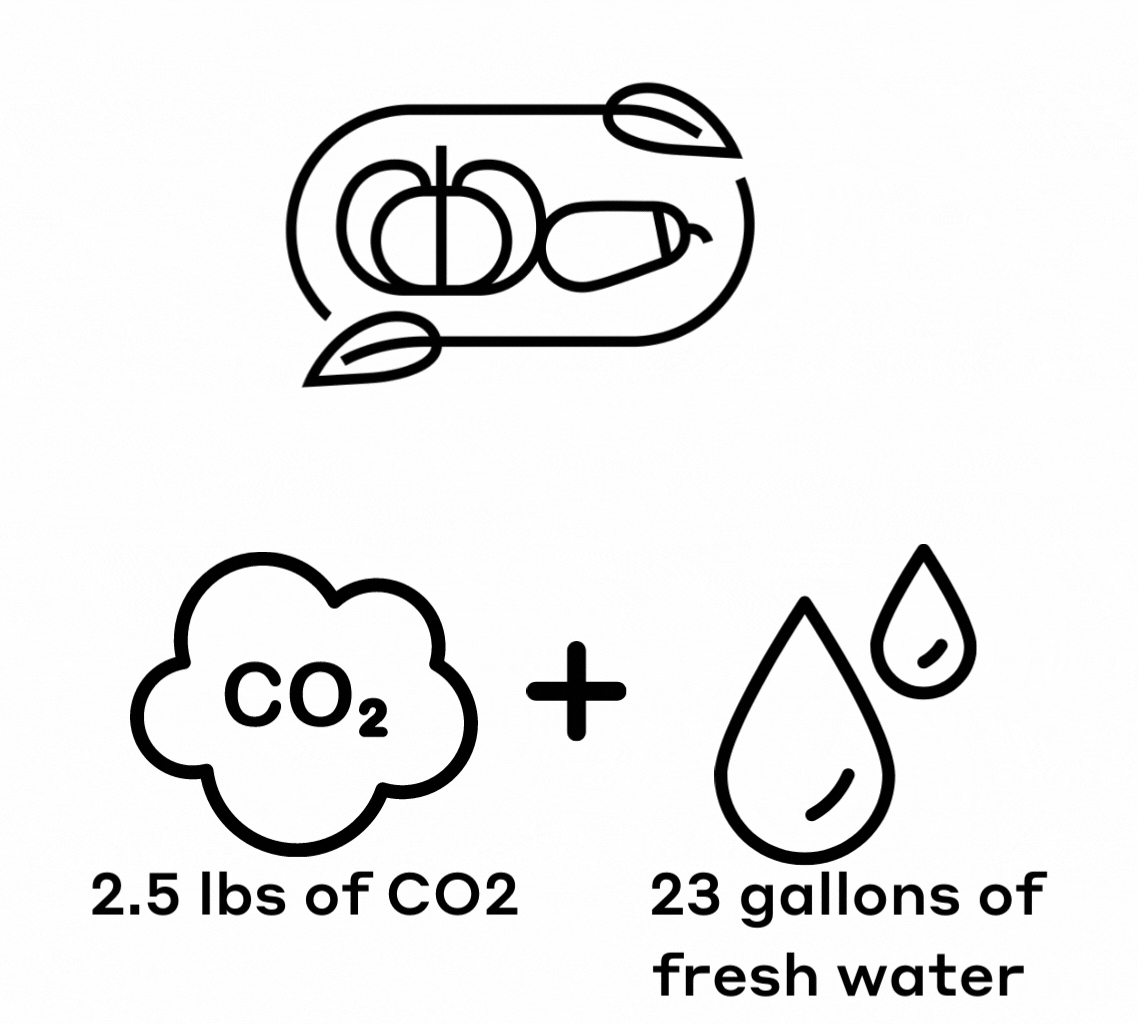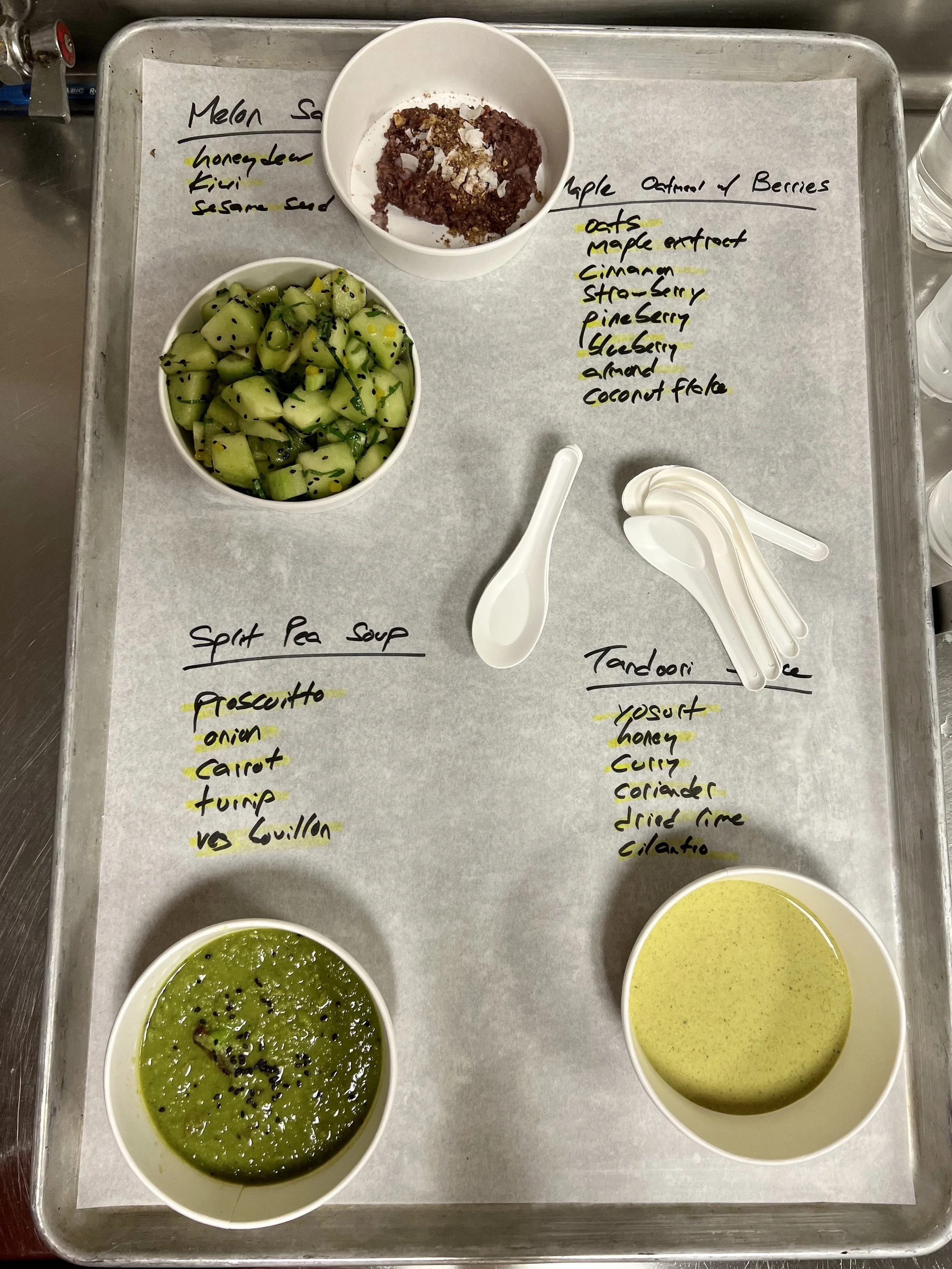Spring 2022 Report
from Rethink Food
Sustainability in Our Food System
USING EXCESS FOOD IS GOOD FOR THE ENVIRONMENT
Every year, 108 billion pounds of food go uneaten in the U.S. - the equivalent of 40% of the country’s food supply. Food excess ends up in landfills, resulting in 8% of global, human-made greenhouse gas emissions and contributing to pollution and climate change. Meanwhile, more than 38 million Americans lack reliable access to nutritious meals. In New York City alone, more than 1.5 million New Yorkers don't know where their next meal will come from.
Sustainability and equity go hand in hand as climate change disproportionately impacts lower-income communities. Rethink Food is on a mission to create a more sustainable and equitable food system - one that takes excess food, when possible, from sources including restaurants, grocery stores, and other food businesses - and converts that food into nutritious, delicious meals for our communities.
Currently, we are:
Picking up excess food from businesses, special events, and farms to convert into meals for the community. If you are interested in donating excess food to help provide meals for the community, please fill in the form here.
Receiving thousands of pounds of excess/donated food from grocery stores and supermarkets as part of a new program to produce sauces, soup starters, and jams that community-based organizations can order at no charge.
Working with CookUnity as our national food excess partner where they donate self-funded meals to local communities in New York, Chicago, and Miami—and expanding to more cities soon.
Creating training content on sustainability and community work for Opus, a premier hospitality training app with thousands of restaurant and food establishment clients. Read more about our partnership here.
Working with NYC schools to share educational content on reducing food waste, with activities including leftovers cookbooks, food storage tips for freshness, and posters about the environmental implications of using excess food.
Getting good food to more people who need it is at the heart of our mission, and the environmental benefits are clear.
OUR IMPACT
Converting excess food into community meals
Along with partnering with restaurants and food establishments nationwide to prepare 40,000 meals a week for the community, Rethink Food runs a commissary kitchen that prepares 9,000 meals a week–using a mix of purchased, donated, and excess food.
We use excess food from a set of partners throughout the food ecosystem, including grocery stores, corporate kitchens, office buildings, entertainment venues, farms, and other establishments across the value chain. Meals are packed in disposable hotel pans and distributed to community-based organizations such as churches and community centers at no charge for our neighbors facing food insecurity.
In 2022 to date, we have received and processed 150,000 pounds of excess and donated food–leading to an environmental savings of 375,000 lbs of carbon dioxide and 3.45 million gallons of fresh water.
INTERVIEW WITH SARAH HEROLD, DIRECTOR OF OPERATIONS AND SUSTAINABILITY
How do you view the sustainability part of your role at Rethink Food?
I want us to find thoughtful, applicable answers to these questions: How can we provide meals to our community in the most ethical and responsible ways? How can we use excess and donated food to make a meaningful impact on our carbon footprint? How can we exemplify best practices? And how can we share this information?
What are you currently working on?
We are always looking at ways to create new practical models and extend the use and shelf life of donated and excess food we receive. Our team is processing thousands of pounds of excess food and vegetables every week, to convert into jams, sauces, soups, and stocks. These are nourishing, nutrient-dense products that we make available for free online orders. Soup kitchens use them to cook meals (saving money and time in their production schedule), and food pantries stock containers of our products for customers to take home. It’s a win-win: we use food that would otherwise go to waste and make it into delicious, chef-quality items that you can use in a number of different ways.
What are some simple ways people can make more sustainable food choices at home?
I hesitate to assert any prescriptive advice; however, I can share some approaches I take. I look for small ways to decrease our carbon footprint, approaching sustainability through intentionality - being aware of the amount of plastic packaging in food products; bringing a reusable bag; buying in bulk when possible; building recipes with all the ingredients in the fridge before buying more; and using meat and vegetable trimmings including stems, stalks and greens for stock; and composting the rest.
RECENT EVENTS
-

April 6: Future Food Talk
Rethink Food was proud to be the excess food partner of a panel on agricultural future at Farm to People that included a four-course tasting.
The panel discussion was led by investigative journalist Larissa Zimberoff and Farms To People co-founder and CEO Michael Ray Robinov. Speakers included Dan Barber (Blue Hill at Stone Barns), Malaika Spencer (Roots to River Farm), and Irving Fain (CEO/Founder of Bowery Farming.)
Farm to People is a longstanding partner of Rethink Food — totaling over 10,000 pounds of donated food to prepare nutritious meals for food-insecure New Yorkers.
-

Rethink Network Launch Party
On April 7, we launched the Rethink Network, our group for professionals in the first 15 years of their career! Members come from all industries including hospitality, food insecurity, and nonprofits, and are interested in helping to create a more sustainable and equitable food system.
The launch event took place at Manhattan's first distillery since Prohibition, Our/New York Bar & Distillery, which created Our/New York Basil, made in partnership with Rethink Food in celebration of Earth Day 2021.
This spirit is made with surplus basil from Brooklyn-based urban farm Square Roots. The herb is hand-chopped and added to a base mixture before infusing for 24 hours. The infused liquid is filtered, distilled, blended, and finally hand-bottled in the distillery located in Chelsea.
If you'd like to get involved, please visit our Rethink Network page or contact rethinknetwork@rethinkfood.org.


